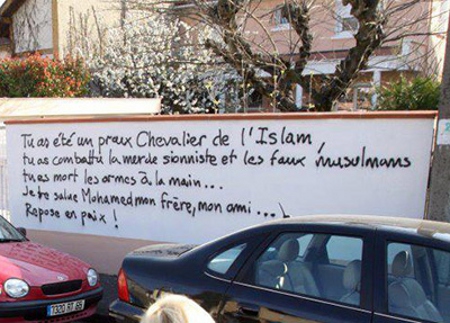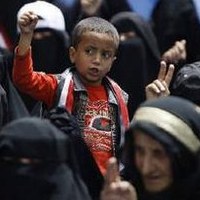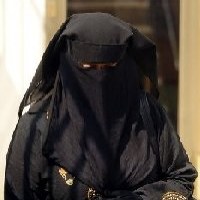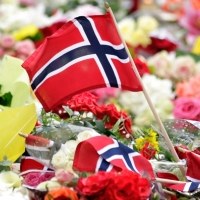![]()
RubinReports | By Barry Rubin

Graffiti praising Merah on the wall of a French house: "You were a valiant Knight of Islam! You fought the shit zionist and the false muslims. You died guns in hand... I salute you Mohamed my brother, my friend... Rest in peace!" (Source: gatestoneinstitute.org)
In the tiny town of Barr, France — population 6000 — in Alsace near the German and Swiss borders, there is a tiny parking lot near the main street. You pull into it, take one of the dozen or so spaces, and then notice the sign, “Parking de Synagogue.”
For a moment one thinks that this is the parking lot of a synagogue. But then you see the small sign saying that in 1882 a synagogue was built on this spot and in 1985 it was torn down to make the parking lot. It isn’t the parking lot for the synagogue but the Synagogue Parking Lot, the only one in town.
The next village down the road, Bergheim, population 1500, is far tinier and even more charming, about the closest thing to a perfectly preserved Medieval place I’ve ever seen. There, too, is a sign where a synagogue once stood. In both places, I visited the well-organized tourist information bureaus but they could find no picture of the synagogue and knew nothing of their village’s Jewish history.
In the big city of Nancy, in Lorraine, is the famous Musee de l’ecole de Nancy, with brilliantly designed and executed neavaux arte furniture and porcelain. Look at the names of those who bought the items or for whose homes it was made. Many of them, too, were Jews. One remarkably beautiful vase on display was a gift more than a century ago of the Horticulture Club to its honorary president, also a Jew.
And in the fortress city of Verdun, held by the French army in acts of almost suicidal heroism against a huge German assault lasting almost all of 1916, there is a derelict synagogue and on the memorial to the children killed during the fighting that includes Jewish names.
These communities disappeared and we are now seeing a new version of this story being enacted due to the physical and psychological insecurity of the remaining Jewish community, now focused in France’s big cities.
On the streets of the larger towns in eastern France, there were the small placards for selling magazines which featured a photo of a little girl with the headline, “The girl who made all of France cry,” one of the children murdered by an Islamist terrorist in Toulouse a few days earlier.
Yet the media in France and internationally largely spun the Toulouse story as the tale of troubled young man, perhaps himself a victim, despite the fact that the French police arrested 20 other psalmists, the killer trained at a camp in Afghanistan, his father was a member of an Islamist terror cell in Toulouse, his brother was a known and possibly violent extremist, and the killer who was unemployed had access to a fund of 20,000 Euros.
So the killings allegedly made France cry, but did they make France think? Remember that in addition to the Jews killed there were also three French Muslims murdered because they dared to serve in the French army.
What signal does this send to French Muslims? If you are loyal to the country you may die and nothing much will be done about it. Similarly, if you are a Muslim woman and follow a French-style lifestyle you may well die, at the hands of your own family no less, and the state cannot or will not be able to protect you.
Alongside the battle of the radical Islamists to murder Jews is the battle to seize and maintain control of the Muslim community. There is no effective struggle being waged on the latter front against the extremists, especially because the governments and their officials do not really recognize that a threat exists. The extremists’ takeover of leadership among all Muslims is by no means inevitable but it is being made inevitable by the policies of the French and other European governments. This is bad for Muslims being bullied into line, Jews, and the countries themselves, of course.
And the current French presidential election is making clear that whoever wins nothing will be done about these issues and the country’s other problems. To demonstrate this point, read the superb analysis of the election by Michel Gurfinkiel. Here’s the key passage on President Sarkozy and his government:
“A French Reaganite upon being elected, he became a classic French statist and welfare provider after the 2008 financial meltdown. Though a fierce critic of illegal immigration, he didn’t launch any real policies to curtail it.”
In 2004[1], Jean-Pierre Obin, inspector general of the French educational system, conducted a study of the situation in French schools, “Signs and Manifestations of Religious Affiliation in the Educational Establishments.” [Download here in French] It is not surprising, but terribly damaging, that this report was kept secret. Since it was kept secret, nothing was done about it.
The report shows that French Muslim students are subject to violence and intimidation from within their own community which then spills over to affect non-Muslims as well. The militants enforce a dress code; bar co-educational activities; and make movies, swimming, and the gym off limits for girls. Students who do not comply might be beaten.
Pressure is also applied against drawing, singing, dancing, studying other religions, and even against learning English in some cases. Muslim students at certain schools have their own lunch tables, toilets, and of course food. They are pressured, and in turn pressure teachers, against studying the Holocaust or even the work of the secular-oriented philosophers who created French culture.
In other words, they are being isolated from friendship with non-Muslim classmates and contact with core French beliefs, raised as if they were in the Middle East. When they grow up, the result is most predictable. And if you think this issue is restricted only to the largest cities, note that in tiny Barr, half of those selling things on market day were clearly Muslim immigrants and every single woman among them was wearing a head-scarf and heavy coat on a hot day. Nothing wrong with that…if it’s voluntary and if they have a chance to know about free choice and the society around them.
In predicting drastic changes and the Islamization of European countries over the longer run, pessimistic foreign observers underestimate the attractiveness of assimilation and the Western lifestyle on Muslim immigrants and their children. Where such people can physically escape from the ghetto such integration is more possible, though even in such cases — as is often seen with arrested terrorists — identity crises can produce an even higher rate of radicalism.
But the pessimists are not necessarily wrong because the natural processes of integration that might otherwise be expected cannot take place where governments don’t defend the freedom of their own Muslim citizens and even push them back into subjugation to the Islamists by implementing “multicultural” policies. These treat people not as individuals but as members of communities where the leaders set the rules of identity.
It is often claimed that since many of the most violent militants are gang members who drink, use drugs, commit non-political crimes, and don’t go to mosque, that this radical Islamist threat doesn’t exist or is overestimated. Yet what is happening is that “ethnic” (Arab, Kurdish, Turkish) or “national” (country of origin) identity is being subsumed in an Islamist-style orientation.
This is composed of hatred toward the country of residence; orientation toward traditionalist lifestyles; the suppression of women, antisemitism, attacks on dissenters, and idealization of radical Islamists abroad. Another name for this mix is: social nitroglycerine.
With few exceptions, there is not the tiniest sign that European governments are even trying to meet these challenges. Therefore, the only hope is that European Muslims — not so much because they are self-consciously moderate but simply want to live their own lives and be left alone by the extremists — will reject the radical Islamists.
Thus, in a real sense, many European Muslims are victims, but not due to their non-Muslim neighbors but to their Muslim neighbors.
As a metaphor let me suggest that perhaps one day you’ll be able to leave your car in the Synagogue Parking Lot in Paris, Marseille, or Toulouse. The cathedrals are too massive and useful to tear down. Perhaps they will merely be converted to other religious uses.
It sounds — and probably is — too sensationalist to paint such a picture. Yet whether that future happens is up to European governments to decide and looking at the choices they are making — with very few exceptions — the result is likely to be close to what the pessimists are warning about.
Note:
[1] Jean Pierre Obin, the author of the report, wrote a book in 2011 entitled “Etre enseignant aujourd’hui (Be a teacher today), available in paperback [Format Kindle – 6 july 2011]. In this book, Obin tries to explain how the teachers are involved in the system, how they contribute to its results, in which areas they have an influence. He also tries to understand how society, as well as the political order, is affecting the educational system and the professional practices and on what they produce and its consequences.



 RSS
RSS










Latest Comments
Hello Mike, Thank you for your positive feedback to the article. I felt there wasn’t too much critical analysis of ...
Thanks for this considered and well constructed article. A follow up article on the manner in which the editorial contro...
THE CLUELESSNESS OF CLAIMING THAT OBAMA'S MIDDLE EAST POLICIES WERE A FAILURE CANNOT BE FURTHER FROM THE TRUTH, WHAT THE...
As long as Obama is the president of the usa do not trust the us government......
Thank you for an good read....